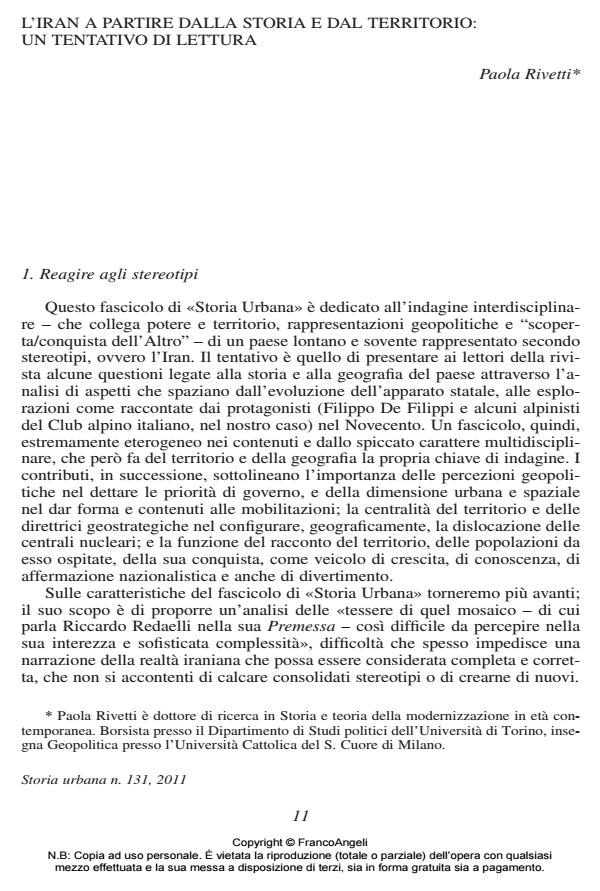Restarting from history and geography: An interpretation attempt
Journal title STORIA URBANA
Author/s Paola Rivetti
Publishing Year 2011 Issue 2011/131
Language Italian Pages 24 P. 11-34 File size 807 KB
DOI 10.3280/SU2011-131002
DOI is like a bar code for intellectual property: to have more infomation
click here
Below, you can see the article first page
If you want to buy this article in PDF format, you can do it, following the instructions to buy download credits

FrancoAngeli is member of Publishers International Linking Association, Inc (PILA), a not-for-profit association which run the CrossRef service enabling links to and from online scholarly content.
Iran is often the victim of stereotypes which are paradoxical: represented as home to violence, a "dark" medieval-religious revolution, and to an homogeneous, static society, since the Nineties Iran has fit the cliché of a "country in transition from tradition and modernity", being represented as "schizophrenic", dichotomist, divided between traditional, religious aspects and the spirit of modernity. The justification of such a representation is the supposed gap between the rules set by the regime and the real behavior of the people. This narration of Iran, "the world of paradox", tells us only a por tion of the reality, giving up the restitution of complexity. Restarting from history and geography, this essay mentions some aspects of the "Iranian complexity" (people’s heterogeneity and strong nationalism; hegemonic ambitions and "strategic solitude"; social transformation and regime support) enlightening the coexistence of conflicting elements.
Keywords: Stereotypes Complexity Geography Social transformations
Paola Rivetti, L’Iran a partire dalla storia e dal territorio: un tentativo di lettura in "STORIA URBANA " 131/2011, pp 11-34, DOI: 10.3280/SU2011-131002